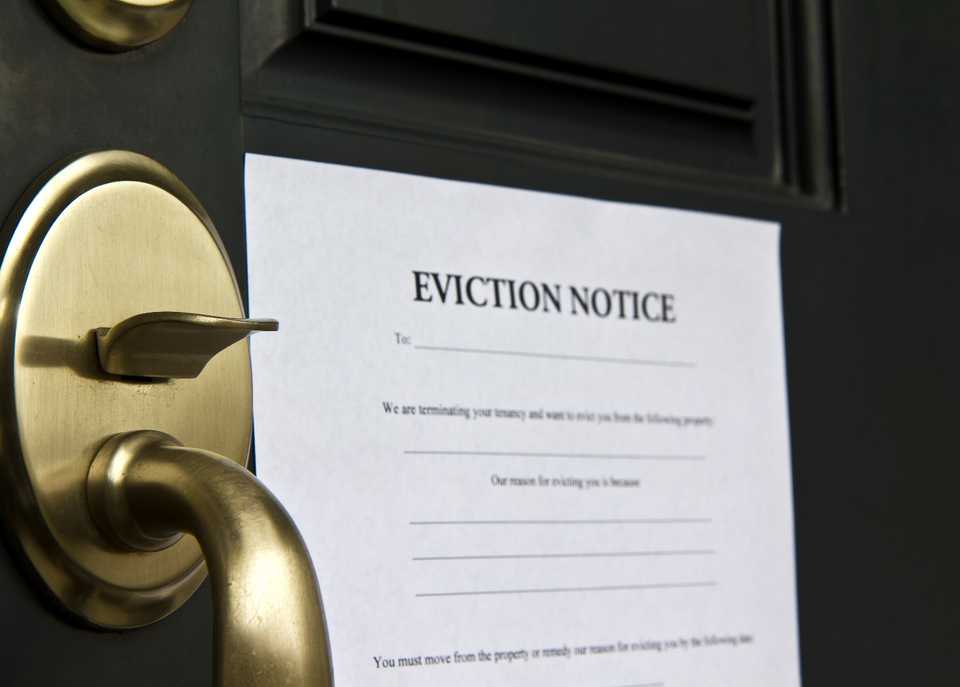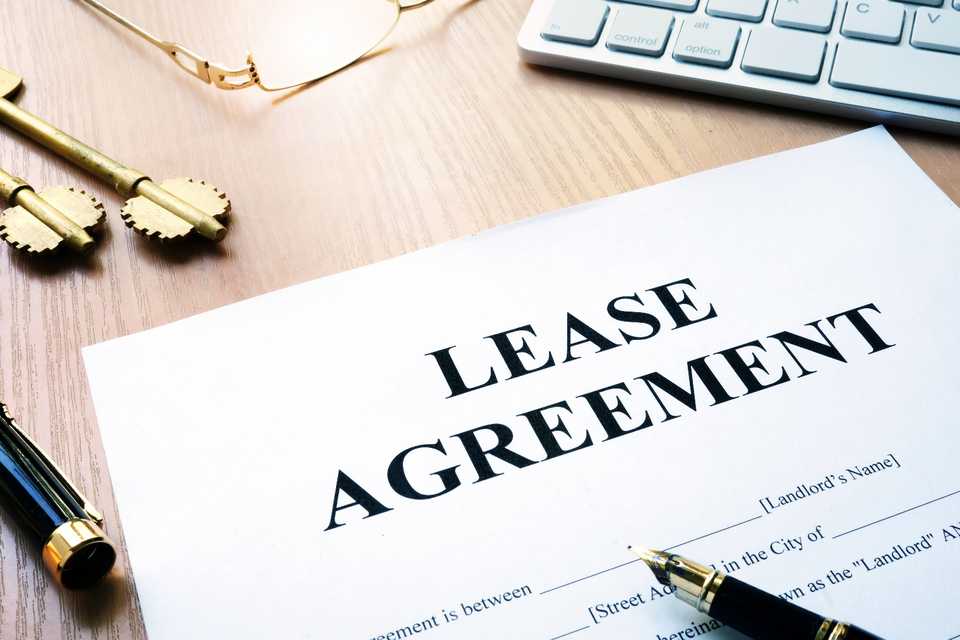Are you being evicted? As a tenant, you have rights. The landlord must abide by the rules, including filing an eviction application with the Landlord and Tenant Board.
A landlord can only evict a tenant in specific circumstances and the proper notice should be given to the tenant.

It is important to understand that a landlord is not legally entitled to evict a tenant as only the LTB can do so in Ontario.
If you need to fight an eviction notice, get legal advice from experienced landlord and tenant dispute lawyers near you.
Just fill out the short online form to get connected to lawyers in Ontario, free of charge and with no obligation.
Understanding Tenancy Agreements in Ontario
If a landlord rents an apartment to someone, they both enter into a tenancy agreement wherein the tenant agrees to pay monthly rent for the right to occupy the unit.
If it is a written agreement, it is referred to as a lease but a tenancy agreement may also be verbal or implied. The landlord and tenant agree with a specific time for the lease which is referred to as a fixed term tenancy. The start and end date are specified in the lease and usually last for a year.
At the end of the lease period, the tenant does not automatically have to move out or renew the lease to be able to stay. If the rent is paid monthly, it can be renewed on a monthly basis. The terms of the original lease will apply unless the landlord and tenant agree to renew for a new term with a new lease.
If the landlord wants to change the terms of the new lease , it must follow the Residential Tenancies Act which sets the guidelines for rent increases, etc.
The Act covers private residential rental units such as semi-detached homes, apartments, condos, and basement apartments.
Rentals such as college residences and commercial properties are not covered by the Act.
The Rules on Security of tenancy
Tenants have the right to security of tenancy. A tenant can continue to use the rental unit:
-
Until such time the tenant decides to leave and gives the landlord the proper notice for moving out.
-
The landlord and tenant mutually agree to end the tenancy agreement;
-
The landlord gives the tenant a notice informing his intent to end the tenancy for grounds allowed under the Act and:
-
The tenant agrees to move out
-
Or the landlord applies to the LTB which then issues an eviction order.
Tenants don’t need to move out upon receiving an eviction notice .
A landlord must give an official notice of eviction which will begin the eviction process. The tenant is not required to do anything at this point until the landlord files an application with the LTB. The tenant will be notified by the LTB of the application and the date of the hearing.
Ending Tenancy Agreements

Both the landlord and tenant can agree to end a tenant lease in Ontario at any time, even during the term of a lease. They can have a verbal agreement although it is advisable to have a written one.
A written agreement will eliminate any confusion. The Landlord and Tenant Board provides the N11 Form for Ending a Tenancy Agreement.
When & How a Landlord can end a Lease or Tenancy Agreement?
Under the Act, a landlord can give a tenant notice to end the tenancy earlier if the tenant, his guest, or someone else living in the rental unit does something they should not do. In this situation, a landlord is ending a tenancy agreement “for cause”.
Some instances that can be “cause” for ending a tenancy include:
- Failure to pay the rent in full;
- Causing damage to the rental unit;
- Disturbing the landlord or other tenants;
- Doing illegal activities in the residential complex or the rental unit.
Other valid or legal reasons to end a tenancy agreement may not be related to a tenant’s actions at all. These reasons are referred to “no fault” reasons and include:
- Plans by the landlord to have major renovations or repairs that cannot be done if the rental unit is occupied;
- A member of the landlord’s immediate family or caregiver must move into the rental unit;
- The landlord plans to sell the property and the buyer requires part or all of the property because his immediate family member or caregiver will occupy the unit. This reason only applies in buildings with less than 3 or less units.
In many instances, a landlord has to pay the tenant compensation if the tenant is being evicted for a “no fault” reason. The compensation depends on the reason and the number of rental units in the property.
A landlord is required to give the tenant notice before the termination date or the end of the lease. The time required for advance notice varies based on the reason for the termination.
Other Reasons a Landlord can evict a Tenant

There are other reasons to end a tenancy agreement such as:
- Conversion of use to non-residential: 120 days minimum advance notice to the tenant
- Abandonment of rental unit – the landlord can apply for eviction without giving notice to the tenant
- Termination of employment if housing was provided by the employer: 28 days if weekly tenancy or 60 days
- Damage to property due to negligence: 20 days for first notice or 14 days if second notice
- Impairing safety: Minimum of 10 days’ notice
- Persistent late rental payments: 28 days if weekly tenancy or 60 days
- Unauthorized occupant: Landlord is not required to give the tenant notice
- Illegal acts or business: minimum of 10 days’ notice
- Breach of order of mediated settlement: The landlord is not required to give notice to the tenant and may apply to the LTB for eviction
- Etc.
Can a Notice of Eviction be voided?
If the reason for the eviction is “for cause ”, a tenant can stop the termination of his tenancy by correcting the behavior cited in the notice or doing what is requested. This is referred to as voiding a notice.
The notice will explain what the tenant must do and will give a deadline for compliance. If the tenant successfully resolves the issue by the deadline , the notice becomes void. The landlord cannot apply for eviction once the notice is voided.
There are some types of notices, however, that cannot be voided. The tenant cannot do anything to stop the termination of the tenancy.
The landlord can apply for eviction with the LTB to end the lease if the tenant fails to move out. If the LTB decides to hold a hearing, both the landlord and tenant must explain their side to an adjudicator.
Landlords have a deadline to apply for eviction
In many cases, landlords must follow a deadline to file an application to end a tenancy agreement.
Applications must be filed within 30 days of the termination date indicated in the agreement to terminate. No deadline applies when a landlord has given a tenant a notice to end the tenancy due to failure to pay rent.
What to do if you receive a notice of eviction
Receiving a notice of eviction can come as a shock. Whether you were anticipating it or not, eviction is never easy and can cause a lot of turmoil.

You can follow these steps if you receive a notice of eviction:
- Know where you are in the eviction process.
You must try to resolve any issue with the landlord or owner before the process of eviction begins. A landlord must follow certain steps required by the Landlord and Tenant Board of Ontario before the eviction.
If a landlord tells you orally to leave or writes an email, this does not start the eviction process. A judge from the LTB must be the one to issue an eviction order and must be carried out by a sheriff.
For a legal eviction to happen, the landlord must:
- Give a notice terminating the tenancy and give the reason;
- File an application to the Landlord and Tenant Board for tenant eviction;
- Present evidence at a hearing explaining the reason for eviction. Tenants can attend the hearing and present evidence to defend their case or counter the landlord’s claim.
Note: Tenants sharing a bathroom or kitchen with a landlord or immediate family of a landlord are not covered by the Act. In such situations, a landlord is not required to follow the process of eviction prescribed by the law. The tenant has little or no recourse in such a situation.
- Understand the eviction process and look for legal assistance. You can contact a lawyer or approach a legal clinic for advice.
Eviction Hearings and what to expect

The Landlord and Tenant Board of Ontario will schedule a hearing with some exceptions.
In general, the LTB will not require a hearing if:
- The tenant has agreed to end the tenancy or gave notice to the landlord to end the tenancy early;
- The tenant has breached an LTB order or condition of a mediated settlement
There are 4 types of hearings:
- Video-conference hearings wherein the adjudicator, tenant, and landlord participate in a video conference using an online service.
- Telephone hearing wherein the adjudicator, landlord, and tenant conference over the telephone.
- Written hearings wherein the landlord and tenant submit evidence in writing within LTB deadlines.
- In-person hearings wherein the tenant and the landlord meet with an adjudicator in person.
The LTB chooses the type of hearing to be held.
Both parties are informed by the LTB of the hearing through a Notice of Hearing by mail or email. The LTB may also ask the landlord to give the document to the tenant.
The landlord must prove the reason for eviction at the hearing. The tenant can dispute the eviction application during the hearing and explain why he or she should not be evicted. The LTB evaluates the case before deciding whether to delay or refuse the eviction.
The Board’s Discretionary Refusal to Evict
The LTB reviews and considers all circumstances and has the discretion to deny an eviction.
For eviction cases citing a tenant’s fault, the Board determines if the fault is serious enough to warrant eviction;
For eviction cases wherein the landlord alleges the tenant interferes with reasonable enjoyment, the Board reviews if refusing eviction would result in applications by other tenants for reasonable enjoyment against the landlord;
The Board also considers if refusing an eviction would cause financial stress to the landlord.
A landlord can explain how the refusal to evict can be unfair to the other renters or to the landlord. The Board, when exercising the discretion to refuse eviction, can also attach conditions that both parties must follow.
Stopping an Eviction

A tenant must act quickly to stop an eviction. A Motion to Set Aside an Ex Parte Order with the Board must be filled immediately. The deadline is 10 days within the date of the order.
Forms for filing this motion are available at the LTB. You can also ask a lawyer to help you stop an eviction to ensure the motion is filed properly.
Illegal Lock-out and other Landlord offences
A landlord is not allowed to bar a tenant from entering a rental unit by locking him out. He cannot change the locks or tell a tenant to leave. As mentioned in this article, only a sheriff can evict a tenant after the Board has issued a proper eviction order.
Under the law, an individual landlord can get a fine of up to $50,000 for wrongful eviction and $250,000 if the landlord is a corporation.
If you believe you have been wrongfully evicted and the landlord has violated the Act, you can seek help from an experienced landlord-tenant lawyer in your area.
Other Ways to Seek Legal Remedies
In Toronto, there are 2 other options for tenants and landlords to seek legal remedies.
Landlords and tenants can apply for a remedy up to $50,000 with the Provincial Court of Toronto. This is a formal procedure and you have the option to hire a lawyer to help you.
You may also file your claim with the Superior Court of Justice. Only complex and major disputes end up here and a lawyer will be necessary at this point.
Do you need a lawyer to fight an eviction notice?
Tenant laws in Ontario govern the relationship between tenants and landlords in a rent or lease arrangement.
Even though a tenancy agreement usually defines the rights and obligations of each party, disputes are a typical part of a lease. While some problems are minor, some situations can escalate and result in an early termination of a lease.

A landlord and tenant can try to settle a dispute between them but if a resolution cannot be reached, the next step is to seek a legal remedy.
For the tenant, the legal remedies include:
-
Termination of tenancy
-
Compensation
-
Rent Abatement
-
Damages
When you hire a lawyer to represent you, the problem can be properly presented in legal terms for the court.
Your lawyer will look out for your best interests and work hard to obtain a favorable outcome. A landlord-tenant lawyer will provide the legal assistance you need to fight an eviction notice, or get a legal remedy for your dispute.
Fill out the short online form on this page today to connect with reliable and experience lawyers in your area!